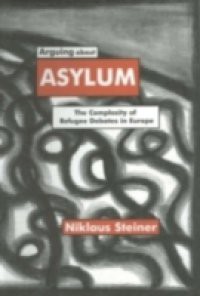In addressing the asylum controversy in Europe today, much of the literature assumes that asylum policies result from the struggle between national interest arguing to tighten asylum and humanitarianism arguing to loosen it. This book challenges this simple tug-of-war image by examining asylum in Germany, Switzerland, and Britain from the late 1970s to the mid 1990s. The findings reveal the complex and often counter-intuitive roles national interest, international norms, and morality play in shaping asylum. It forces us to reconsider how we think about asylum and to explore alternatives to conventional assumptions.

